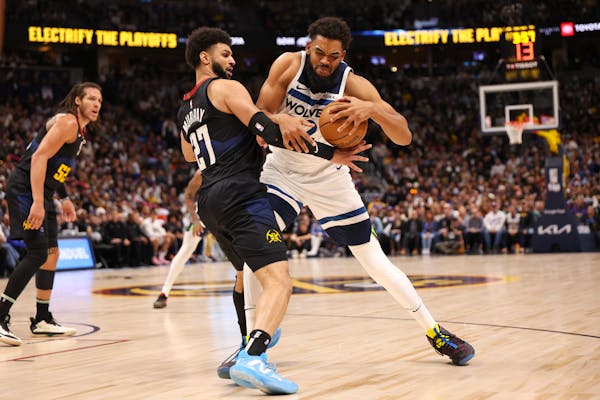Budget geeks sure know how to spoil a party! Early childhood education leaders met in St. Paul this morning to discuss legislative priorities and to celebrate the recent announcements of three multimillion grants to help poor and disadvantaged children receive quality preschool and education services.
First off, though, was a sobering presentation from Christina Wessel of the Minnesota Budget Project. She started by acknowledging the optimism created by the grants, then she revealed the demographic realities for Minnesota and the state's lack of preparedness for them.
In short: The aging of the Baby Boomers means that Minnesota's workforce will contract. To continue economic growth and prosperity, the next generation of workers will have to do more with less -- and reach a historic level of American productivity.
Trouble is, Minnesota is not on track today to create the needed workforce of tomorrow, Wessel said. By 2018, 70 percent of all jobs will require postsecondary education. Right now, only 40 percent of adults in the workforce possess that level of training. Wessel said lawmakers have been using stop-gap measures to balance state budgets in recent years, but that those efforts leave the state without the resources to invest in meaningful and long-term improvements to education and child-care.
"We are going to fall far short of where we need to be," she said.
Others at the conference, hosted by the Start Early Funders Coalition for Children & Minnesota's Future, said the racial and ethnic achievement gap is a major part of the problem. Minnesota has above average school test and kindergarten readiness scores for white children, but some of the worst averages in the nation when it comes to school performance of African American and Hispanic children. The state's minority population continues to surge, making the success of minority children even more vital to the state's future, advocates said.
"By reducing the disparities, everybody benefits," said Dr. Ed Ehlinger, state health commissioner. "The people at the top benefit when you raise the bar at the bottom."
Eliminating disparities is a significant goal of the three grants. A $45 million federal Race to the Top grant will fund, among other things, a statewide system of rating preschools and scholarships to help poor families access top preschool programs.
A $28 million Promise Neighborhood grant will support efforts in the Northside Achievement Zone in north Minneapolis to surround at-risk families with support and to help boost children's education. "It's really the village (approach) gone viral and on steroids," said Sondra Samuels of the Northside Achievement Zone project.
A $15 million grant to the University of Minnesota will expand a similar approach to supporting at-risk children and parents. The expansion will particularly benefit St. Paul and Virginia, Minn.

Drone footage shows Ukrainian village battered to ruins as residents flee Russian advance
In heated western Minn. GOP congressional primary, outsiders challenging incumbent

Minnesota Sports Hall of Fame: A class-by-class list of all members

